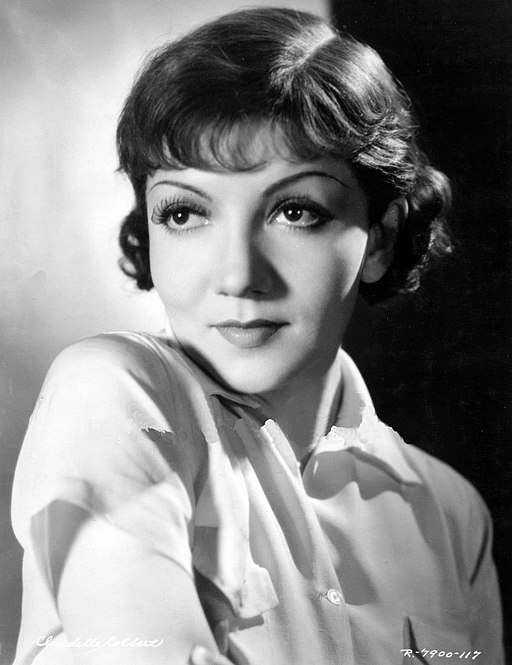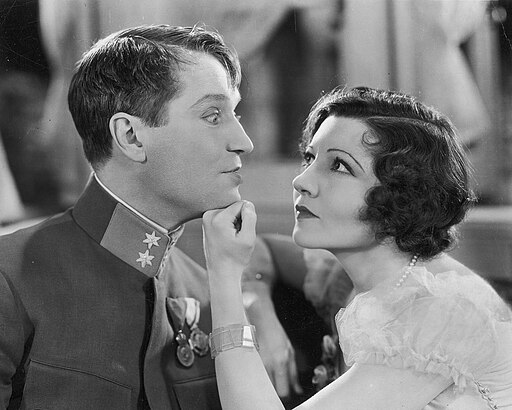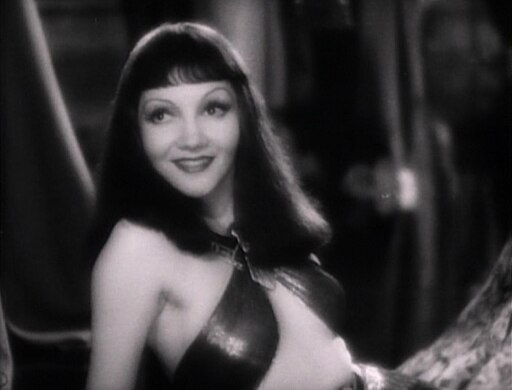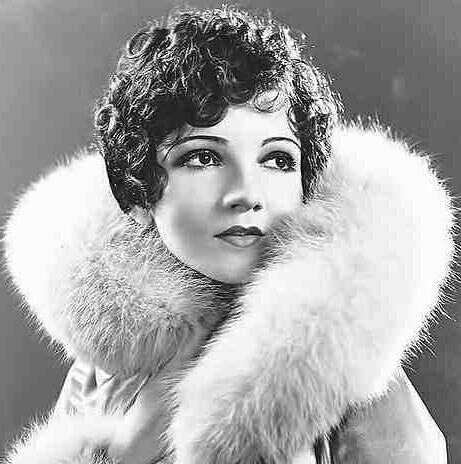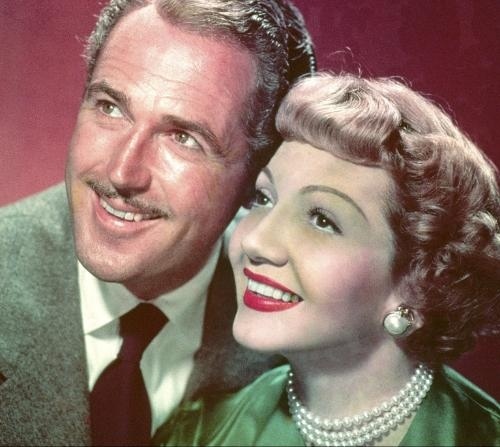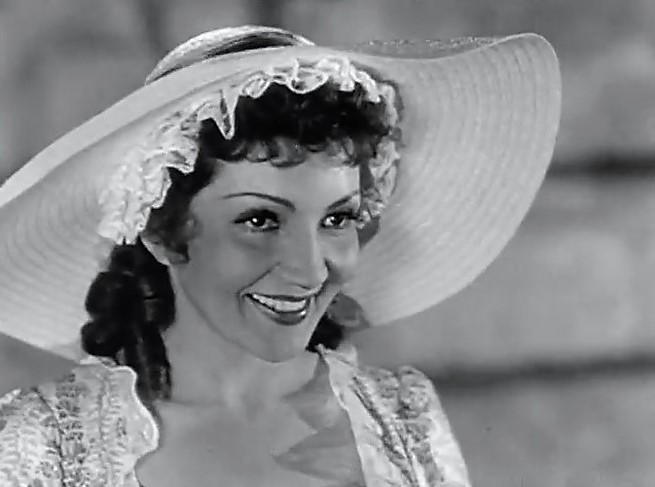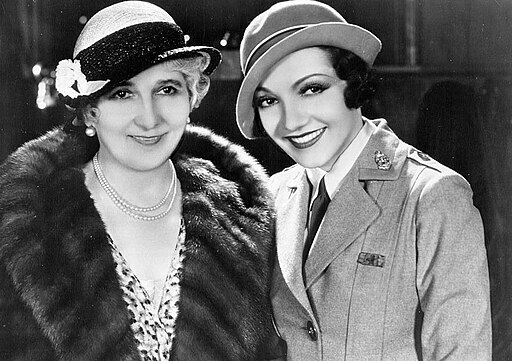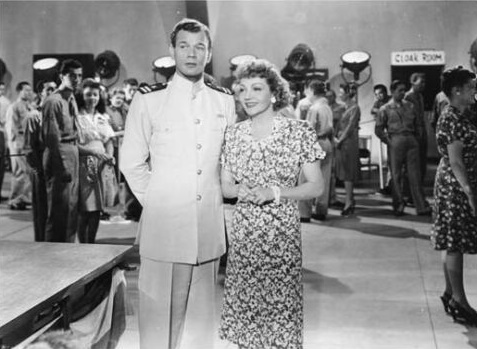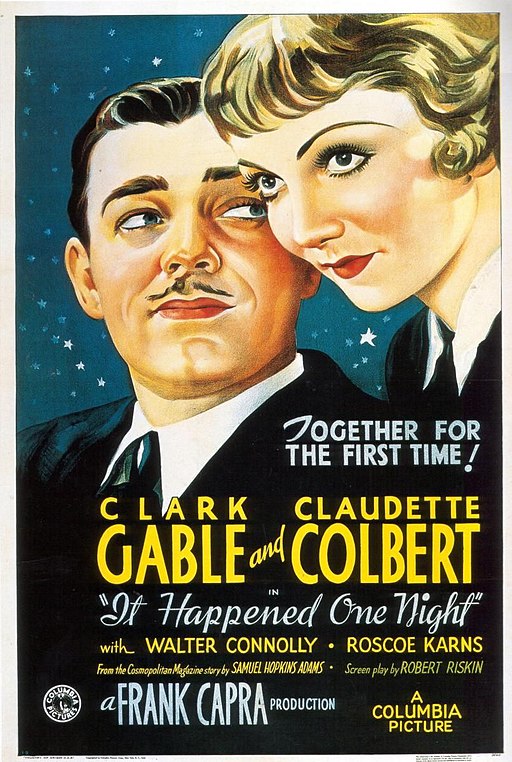Claudette Colbert
back| Full Name | Émilie Claudette Chauchoin |
| Stage Name | Claudette Colbert |
| Born | September 13, 1903 |
| Birthplace | Saint-Mandé, France |
| Died | July 30, 1996 |
| Buried | Initially cremated; ashes buried in a family plot in Speightstown, Barbados |
| Married to | Norman Foster (1928–1935), - Dr. Joel Pressman (1935–1968, his death) |
| Children | None |
| Notable films | It Happened One Night (1934) - Cleopatra (1934) - Since You Went Away (1944) - Drums Along the Mohawk (1939) |
Claudette Colbert
Star of Versatility from Hollywood’s Golden Age
Claudette Colbert, born Émilie Claudette Chauchoin on September 13, 1903, in Saint-Mandé, France, was a luminous and versatile actress who became one of Hollywood's definitive leading ladies during its Golden Age. Moving to New York with her family as a child, she began her acting career on Broadway before transitioning to film in the late 1920s.
Colbert achieved stardom with her captivating performance in "It Happened One Night" (1934), a role that won her an Academy Award for Best Actress. Known for her elegance, comedic timing, and expressive charm, she became a box-office draw with a diverse filmography that included "Cleopatra" (1934), "The Palm Beach Story" (1942), and "Since You Went Away" (1944).
Colbert was celebrated for her ability to balance strength and vulnerability in her characters, effortlessly moving between drama and comedy. Despite her success, she maintained a private personal life, focusing on her craft rather than celebrity.
After a successful career spanning several decades, Colbert retired to Barbados. She passed away on July 30, 1996, remembered as a symbol of Hollywood's glamour and an icon of classic cinema.
Related
Claudette Colbert
Biography, analysis of her career and all her films
Early Life
Born Émilie Claudette Chauchoin in Saint-Mandé, France, Claudette Colbert moved with her family to New York City in 1906. She grew up in a culturally rich environment, which influenced her eventual pursuit of a career in acting.
Career Beginnings
Colbert's acting career began on Broadway in the 1920s. Her stage work led to a transition to films, and she quickly became known for her beauty, wit, and versatility as an actress.
Rise to Stardom
She gained widespread attention with the film "It Happened One Night" (1934), for which she won the Academy Award for Best Actress. The film was a massive success and established her as one of the leading actresses of her time.
Colbert was renowned for her performances in both comedic and dramatic roles. She starred in a variety of genres, demonstrating her range and talent.
Iconic Roles
Some of her most notable films include "Cleopatra" (1934), where she played the title role, showcasing her allure and strength as an actress.
In "The Palm Beach Story" (1942) and "Since You Went Away" (1944), she delivered performances that further solidified her standing in Hollywood.
Personal Life
Colbert's first marriage was to director Norman Foster. The couple divorced, and she later married Dr. Joel Pressman, a union that lasted until his death in 1968.
She was known for her sophisticated and elegant persona, both on and off the screen, and maintained a private personal life.
Later Career and Retirement
As her film career slowed, Colbert returned to the stage and also worked in television. She eventually retired to Barbados, where she enjoyed a quieter life away from the Hollywood spotlight.
Death
Claudette Colbert passed away in 1996 at the age of 92. She left behind a legacy as one of the most charming and versatile actresses of the Golden Age of Hollywood, remembered for her sophisticated presence and memorable performances.
Colbert's career spanned several decades, and she remains a symbol of grace and talent in the film industry. Her performances in classics like "It Happened One Night" continue to be celebrated by audiences and critics alike.
Video Biography about Claudette Colbert:
Remarkable Quotes from Claudette Colbert:
On Acting and Success:
"I know what's best for me, after all I have been in the Claudette Colbert business longer than anybody."
Regarding Her Career Choices:
"I never liked one of my pictures in its entirety."
On Her Personal Life:
"Why do grandparents and grandchildren get along so well? They have the same enemy – the mother."
Reflecting on Fame:
"I bet you thought I was dead. So did I, but I miss it so much I had to come back."
On Aging and Retirement:
"Age is just a number. It's totally irrelevant unless, of course, you happen to be a bottle of wine."
About Her Iconic Role:
Discussing her role in "It Happened One Night": "The script was not great, but sometimes you do a picture just to do a picture."
Analysis of Claudette Colbert’s acting style:
Claudette Colbert was renowned for her versatility, elegance, and a distinctive blend of warmth and strength that she brought to her roles. Her acting style was a key factor in her success as a leading lady during Hollywood's Golden Age. Here's an analysis of her style:
Effervescent Screen Presence
Colbert was known for her effervescent screen presence, which was a combination of charm, wit, and grace. She had a natural flair for comedy, often delivering lines with a light, breezy touch that made her performances feel effortless.
Versatility and Range
Colbert's filmography spanned a variety of genres, including screwball comedies, dramas, and historical epics. She was adept at moving between comedic and serious roles, showcasing her range as an actress. In comedies like "It Happened One Night," she was playful and spirited, while in dramas like "Since You Went Away," she showed depth and emotional resonance.
Understated and Natural Acting
Her acting was often understated, marked by a naturalism that was ahead of its time. Colbert was skilled at conveying emotion through subtle expressions and gestures, making her characters relatable and multi-dimensional.
Elegant and Sophisticated Demeanor
Colbert exuded a natural elegance and sophistication, both in her roles and her personal style. This poise made her particularly well-suited for roles that called for a dignified or high-society character, as in "Midnight" and "The Palm Beach Story."
Chemistry with Co-Stars
She had excellent chemistry with her co-stars, contributing to memorable on-screen pairings, particularly with actors like Clark Gable and Fred MacMurray. This chemistry was essential in romantic comedies and dramas, where the believability of the relationship was key.
Adaptability
Colbert was able to adapt her style to the demands of the role and the director she was working with, a quality that made her a favorite among filmmakers and allowed her to maintain a successful career over several decades.
Awards and Nominations for Claudette Colbert:
Academy Awards (Oscars):
- Colbert won the Academy Award for Best Actress for her role in "It Happened One Night" (1934). This film was also notable for being one of the few to win the top five Academy Awards (Best Picture, Director, Actor, Actress, and Screenplay).
- She received two additional Best Actress Oscar nominations: for "Private Worlds" (1935) and "Since You Went Away" (1944).
Venice Film Festival:
- In 1935, Colbert was awarded the Volpi Cup for Best Actress at the Venice Film Festival for her performance in "Private Worlds."
Other Honors:
- Throughout her career, Colbert received various other nominations and accolades for her performances in both film and television.
- Her contributions to the entertainment industry were also recognized with a star on the Hollywood Walk of Fame.
Posthumous Recognitions:
- After her passing, Colbert's work continued to be celebrated, highlighting her enduring impact on the film industry. She is often cited in retrospectives and documentaries about Hollywood's Golden Age.
Movies featuring Claudette Colbert:
1927:
- "For the Love of Mike": Colbert's film debut, a silent film where she played a young woman caught in a romantic triangle.
1929:
- "The Hole in the Wall": A crime drama where she played a con artist.
- "The Lady Lies": A romantic drama about a woman who becomes involved with a wealthy man.
1930:
- "Young Man of Manhattan": A romantic comedy where Colbert played a witty newspaper reporter.
- "Manslaughter": A drama featuring Colbert as a party girl who faces legal trouble.
- "The Big Pond": A romantic comedy about cross-cultural romance.
- "Paramount on Parade" (segment): An all-star revue and musical produced by Paramount Pictures.
1931:
- "Honor Among Lovers": A drama about office romance and ethics.
- "The Smiling Lieutenant": A musical romance where Colbert's character is caught in a love triangle.
- "His Woman": A romantic drama set on the high seas.
1932:
- "The Wiser Sex": A drama about gender roles and relationships.
- "Misleading Lady": A comedy where Colbert's character kidnaps a man she's interested in.
- "The Phantom President": A musical comedy about a presidential campaign.
- "The Man from Yesterday": A romantic drama set against the backdrop of World War I.
1933:
- "Tonight Is Ours": A romance where Colbert played a princess.
- "I Cover the Waterfront": A pre-Code romantic drama set in a seaport.
- "Three-Cornered Moon": A comedy about a wealthy family dealing with the Great Depression.
- "Torch Singer": Colbert portrayed a nightclub singer in this drama.
1934:
- "Four Frightened People": An adventure film about shipwreck survivors.
- "It Happened One Night": A romantic comedy classic that won Colbert an Academy Award.
- "Cleopatra": Colbert starred as the legendary Egyptian queen in this epic drama.
- "Imitation of Life": A drama dealing with race, class, and gender issues.
1935:
- "The Gilded Lily": A romantic comedy about a stenographer's rise to fame.
- "Private Worlds": A drama set in a psychiatric hospital.
- "She Married Her Boss": A romantic comedy about a secretary who marries her employer.
- "The Bride Comes Home": A comedy about a love triangle involving a magazine editor.
1936:
- "Under Two Flags": An adventure film set in the French Foreign Legion.
- "Maid of Salem": A drama set during the Salem witch trials.
- "Drums Along the Mohawk": A historical drama set during the American Revolution.
1937:
- "I Met Him in Paris": A romantic comedy set in Europe.
- "Maid of Salem": A historical drama about the Salem witch trials.
- "Tovarich": A comedy about Russian nobility in exile in Paris.
1938:
- "Bluebeard's Eighth Wife": A screwball comedy set in the French Riviera.
- "Zaza": A drama about a Parisian singer's tumultuous love life.
1939:
- "Midnight": A screwball comedy where Colbert played a showgirl in Paris.
- "It's a Wonderful World": A comedy-mystery involving a fugitive detective.
- "Drums Along the Mohawk": A historical drama set during the American Revolutionary War.
1940:
- "Boom Town": A drama about the oil industry, co-starring Clark Gable.
- "Arise, My Love": A romantic drama set during the Spanish Civil War.
1941:
- "Skylark": A romantic comedy about a neglected wife.
- "Remember the Day": A drama where Colbert played a beloved schoolteacher.
1942:
- "The Palm Beach Story": A classic screwball comedy.
1943:
- "So Proudly We Hail!": A war film about military nurses in the Philippines.
1944:
- "Since You Went Away": A drama about the home front during World War II.
1945:
- "Guest Wife": A comedy about a man who pretends his wife is another man's wife.
- "Practically Yours": A romantic comedy
Analysis of Claudette Colbert’s performance in “Since You Went Away”:
In "Since You Went Away" (1944), Claudette Colbert delivered a performance that was both poignant and powerful, showcasing her immense talent and versatility as an actress. Directed by John Cromwell and produced by David O. Selznick, the film is a World War II homefront drama, focusing on the American family's experience during the war. Here's an analysis of Colbert's performance in the film:
Depth and Nuance in Portrayal
Colbert played Anne Hilton, a middle-class American woman who struggles to hold her family together while her husband is away at war. Her portrayal of Anne was marked by a deep understanding of the character’s emotional landscape. She brought a sense of resilience, dignity, and warmth to the role, making Anne's journey relatable and heartfelt.
Balancing Strength and Vulnerability
One of the most striking aspects of Colbert's performance was her ability to balance strength with vulnerability. She perfectly captured the spirit of a woman facing the challenges of wartime, dealing with rationing, emotional turmoil, and the fear for her husband's safety, while also maintaining a brave face for her children.
Chemistry with Co-Stars
Colbert's interactions with her co-stars, particularly with Jennifer Jones and Shirley Temple, who played her daughters, were filled with genuine affection and concern. This chemistry added depth to the family dynamics depicted in the film.
Emotional Resonance
The film required Colbert to navigate a range of emotions, from moments of joy and humor to scenes of profound sadness and uncertainty. Her ability to convey these emotions in a nuanced manner added a layer of authenticity to the film.
Legacy of the Performance
"Since You Went Away" was a critical and commercial success, in part due to Colbert’s compelling performance. It was a departure from the light-hearted roles that had initially made her famous, demonstrating her capacity to take on more serious and demanding parts.
In summary, Claudette Colbert’s performance in "Since You Went Away" is a testament to her skill as an actress. She brought depth, nuance, and emotional resonance to her role, contributing significantly to the film's impact as a poignant portrayal of the American homefront during World War II.

